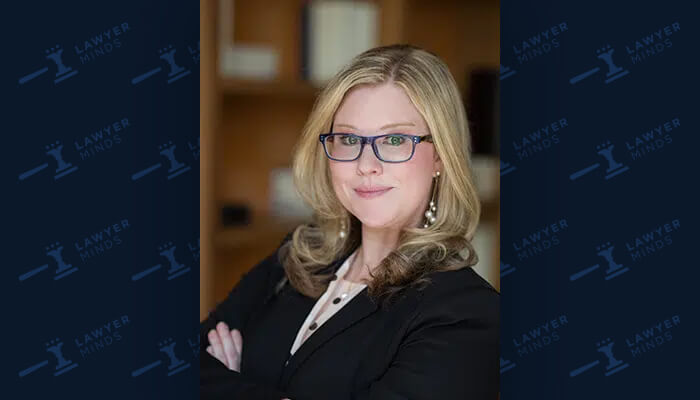Interview with Leslie Pescia

Leslie Pescia is a personal injury attorney who practices at Thomas Law Offices‘ Louisville, Kentucky office. She is a graduate of Auburn University with dual degrees in Political Science and Criminology and obtained her law degree at Thomas Goode Jones School of Law at Faulkner University in 2013. Prior to joining Thomas Law Offices, Leslie helped secure one of the largest single case settlements for the national plaintiffs’ firm she worked at. With her unique background and invaluable skillset, Leslie has helped recover hundreds of millions of dollars for clients nationwide.
Lawyer Minds: What types of cases do you handle?
Leslie Pescia: I primarily handle medical malpractice, nursing home negligence, sexual assault, and personal injury cases. I also have experience handling class actions, qui tam cases, and antitrust matters.
Lawyer Minds: When you are deciding about whether to take a case, what factors are you considering?
Leslie Pescia: I wish I could help every single person who calls or walks into our office, but of course that isn’t possible. The first things I look for when deciding whether to take a case are the basics: whether there are any conflicts and whether timely legal claims potentially exist. Beyond the basics, I consider my conversations and interactions with the client, the client’s desired outcomes, case type, my workload, and other similar factors to make sure I am the right lawyer to handle the client’s case before taking it.
Lawyer Minds: How important is creativity when working on complex cases?
Leslie Pescia: It’s vital. There are similarities in certain areas of practice, but even with those similarities, every client is unique, and every case has very individualized aspects. Creativity is key in harnessing those individual characteristics of a case into factors for success.
Lawyer Minds: How do you stay current on law changes that could impact a client’s case?
Leslie Pescia: There are legal resources, education opportunities, and news resources that help alert me to any changes in law, and my law partners and I are always sharing new information with each other. I am very fortunate to be part of a firm that is very forward thinking when it comes to changes in law as well as changes in the practice of law.
Lawyer Minds: How do you prepare for trial?
Leslie Pescia: I start preparing for trial at the very beginning stages of every case, but in terms of specific preparation for a set trial, I always start with a blank page for notes and a full review of the case file. I know that’s simple, but it sets a foundation that helps make my trial preparation more effective and prepares me to better handle any inevitable surprises at trial.
Lawyer Minds: Is there a moment in any trial that sticks out to you—good or bad—and can you share that?
Leslie Pescia: I recently tried a very difficult medical malpractice case. When the judge got the verdict form, he moved and slightly murmured at the same time, so I didn’t hear exactly what he said. Then, he moves right into polling the jury to ask if “that” is their verdict. I panic internally, for what felt like an eternity, realizing that I wasn’t certain of the verdict. As the judge turned to the second page and read damages, I finally knew for sure that we won.
Lawyer Minds: What constitutes success in your mind regarding a case outcome?
Leslie Pescia: I always want my client to leave in a better position than when they first came into my office, but what that specifically looks like can vary. Great verdicts and settlements can certainly be “successful” outcomes but getting answers and information for clients, or making sure their story gets told, can also be a level of success in some instances.
Great verdicts and settlements can certainly be “successful” outcomes but getting answers and information for clients, or making sure their story gets told, can also be a level of success in some instances.
Lawyer Minds: Do you believe pessimism or optimistic is more valuable as a lawyer?
Leslie Pescia: I don’t think one is more valuable than the other, rather, I think it’s more valuable to be aware of which way you typically lean. Both traits are valuable as a lawyer. That awareness helps use the strengths of your typical trait to your advantage and seek out those with the opposite demeanor to play on their strengths as well.
Lawyer Minds: What’s one piece of advice you’d give to someone considering practicing law?
Leslie Pescia: I think the biggest piece of advice I have is to really think about why you want to practice law, make sure you are doing it for the right reasons, and don’t let your “why” get lost as you go through your practice. Lawyers are in a very unique position to help people, and the best lawyers I know came into the profession because they truly want to help.
Lawyers are in a very unique position to help people, and the best lawyers I know came into the profession because they truly want to help.
Lawyer Minds: What’s one thing you want the readers to know about you that we didn’t ask?
Leslie Pescia: I love being a lawyer, but when I’m not lawyering, you can find me at any kind of sporting event or curled up with a good book!
Lawyer Minds would like to thank Leslie Pescia for sharing her insights with our readers.

